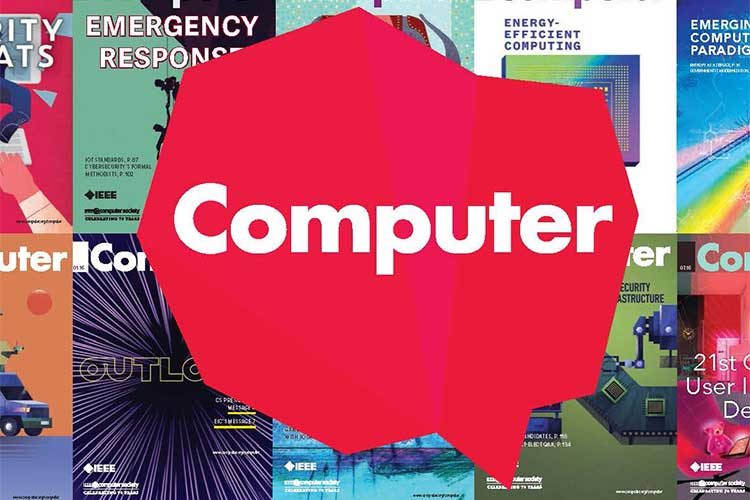Abstracts (co-0318@computer.org): CLOSED
Full paper: 15 August 2017
Publication date: March 2018
Computer plans a March 2018 special issue on E-Coaching for Health.
Organized increasingly around computers and the information economy, our modern lives require very little physical activity, and, for nourishment, we have embraced the convenience and thriftiness associated with fast, processed foods. As a result, people living in developed nations face serious health challenges related to sedentary lifestyles and diseases arising from nutritional lapses. It is therefore essential that we find new ways to improve health so that we can live longer and age well. Whereas research has traditionally focused on biomedical science and advances in clinical practices, recent efforts have made significant strides in finding novel ways to promote behavioral changes to improve health outcomes. In fact, avoiding unhealthy habits is currently a major epidemiological priority. To achieve this goal, innovative approaches that automatically and autonomously identify troublesome behaviors are essential in leading to lasting, beneficial behavioral changes.
With an increasing number of smart, ubiquitous sensing systems developed and deployed across the globe, we are primed to help coach people to have healthier behaviors. The increasing accountability associated with app- and device-based behavior tracking not only provides timely and personalized information and support, but also gives us an incentive to set goals and do more.
The guest editors of this special issue aim to bring together the latest advances, experiences, findings, and developments related to smart sensing, modeling, and understanding of human behavior and how these can be useful in service of automated or smart coaching in support of adopting healthier habits and improving health.
We invite novel, innovative, and exciting contributions relating to sensor systems used for behavior monitoring and coaching, the ethical and societal aspects of such technologies, and how best to model behavior to improve the effectiveness of e-coaching strategies. Additional topics for this special issue could also include:
- wearable, mobile, and ubiquitous health sensing systems;
- participative, crowd, and collective sensing;
- collective e-coaching;
- context-awareness and semantic modeling;
- physical and virtual coaching systems;
- e-coaching system design;
- technology-enabled behavioral change;
- persuasive tactics and associated ethics their use;
- e-coaching applications to address specific domains such as weight control, sleep deprivation, or exercise promotion; and
- managing clinical trials and evaluation frameworks.
Only submissions that describe previously unpublished, original, state-of-the-art research and that are not currently under review by a conference or journal will be considered.
There is a fixed 6,000-word limit (figures and tables are equivalent to 300 words each) for final manuscripts. Authors should be aware that Computer cannot accept or process papers that exceed this word limit.
Articles should be understandable by a broad audience of computer science and -engineering professionals, avoiding a focus on theory, mathematics, jargon, and abstract concepts.
All manuscripts are subject to peer review on both technical merit and relevance to Computer’s readership. Accepted papers will be professionally edited for content and style. For accepted papers, authors will be required to provide electronic files for each figure according to the following guidelines: for graphs and charts, authors must submit them in their original editable source format (PDF, Visio, Excel, Word, PowerPoint, etc.); for screenshots or photographs, authors must submit high-resolution files (300 dpi or higher at the largest possible dimensions) in JPEG or TIFF formats.
Authors of accepted papers are encouraged to submit multimedia, such as a 2- to 4-minute podcast, videos, or an audio or audio/video interview of the authors by an expert in the field, which Computer staff can help facilitate, record, and edit.
Questions?
Please direct any correspondence before submission to the guest editors:
- Oresti Banos, University of Twente (o.banoslegran@utwente.nl)
- Chris Nugent, Ulster University (cd.nugent@ulster.ac.uk)
For author guidelines and information on how to submit a manuscript electronically, visit www.computer.org/web/peer-review/magazines. For full paper submission, please visit https://mc.manuscriptcentral.com/com-cs.


